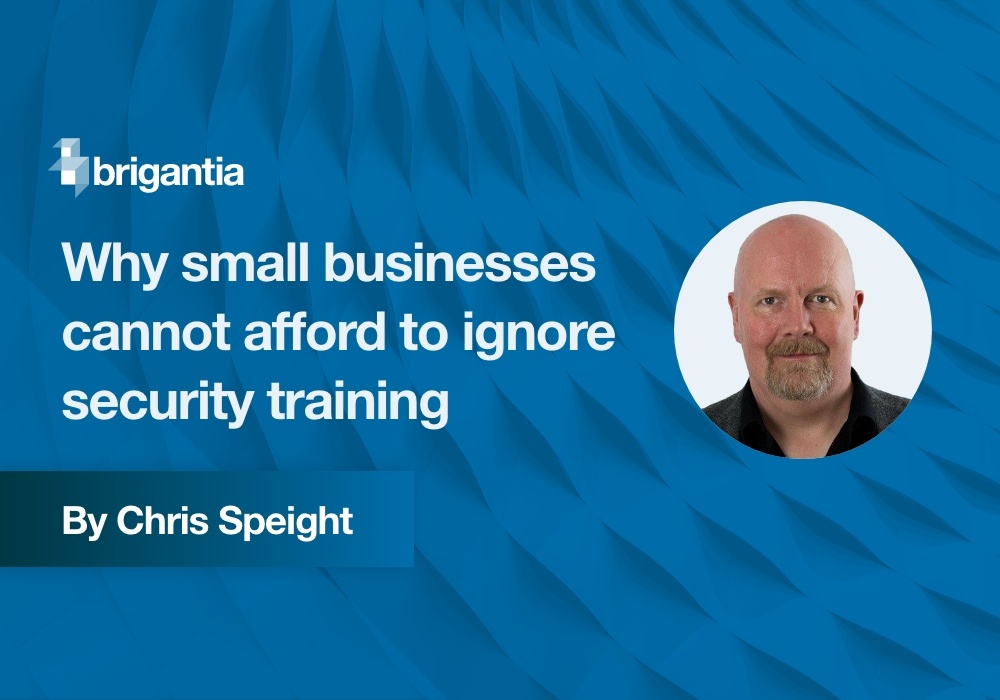It's easy to see why we're a technology-dependent society. However, for all the positive opportunities that technology provides, it also creates opportunities for cybercriminals. Cyberthreats are a very real problem that every business must be aware of. Some may believe that cybercriminals only want to target large corporations, but evidence shows that small businesses are just as vulnerable.
Cyberattacks on small businesses are becoming more and more frequent. They have become attractive targets for cybercriminals due to their limited cybersecurity resources and vulnerabilities, and can be viewed as steppingstones to larger organisations to which they are linked.
So, if small businesses are becoming more of a target for cybercriminals, what should they be aware of?
Malware
Malware can infiltrate a company's system in a variety of ways, including ransomware, viruses, phishing attempts, and other deceptive techniques. Trojans, viruses, and worms are the most common malware threats that small businesses must be concerned about.
Viruses take many forms, but they all aim to harm computer hardware, disrupt programmes, corrupt or delete files, or degrade overall system performance.
Regardless of the type of malware, system data, files, and networks are all at risk.
Phishing attacks
Phishing attacks are a constant threat in the digital age, and cybercriminals use them to target individuals or organisations. Contact will appear as a legitimate institution via email, phone, or text message to dupe the recipient into believing what they have received is genuine.
A phishing attack is an attempt to obtain personally identifiable sensitive data, such as banking passwords and credit card information, which may result in financial loss as well as identity theft.
Social engineering
Social engineering attacks use human psychology to trick people into disclosing sensitive information. Small businesses are vulnerable to socially engineered attacks such as phishing emails because they may have less stringent employee training and cybersecurity awareness procedures in place.
How can you identify a phishing attempt? Regular training is the best way to avoid becoming a victim of a phishing attack, and many businesses are turning to companies like KnowBe4 for help. KnowBe4 empowers employees to make more informed security decisions by combining security awareness training and phishing simulations.
Ransomware
Ransomware is a type of malicious software that encrypts data, rendering it inaccessible until the attacker is paid a ransom. The impact of this type of attack on a small business can be devastating, with common consequences including data loss, disruption to daily operations, and damage to a company's reputation. All of this can be difficult to overcome.
A ransomware attack can have far greater consequences for a small business than for a larger organisation, with some businesses unable to meet the financial demands imposed by their hackers.
How can small businesses avoid becoming victims of ransomware attacks? To stay ahead, businesses must employ a multi-pronged strategy that includes regular data backups, training, and robust security measures.
Password vulnerabilities
When you're a small business, it's easy to fall into the "it wouldn't happen to us" mentality, and having a password management system in place may seem like something only larger corporations would need. However, weak password protocols pose significant security risks, regardless of the size of your business. Cybercriminals can easily crack simple passwords, allowing them to gain unauthorised access to sensitive information.
Businesses must have strong, unique passwords, and rather than relying on employees to create them, password management systems such as Keeper Security will protect organisations from password-related data breaches and threats.
Out of date software and patch management
Keeping software up to date is a never-ending battle, and small businesses may lack the resources or knowledge to do so. However, patch management is critical, and updating software and operating systems on a regular basis will help close any security gaps that arise, keeping your business secure.
Third party and supply chain risks
Small businesses, like any other, can work with third-party vendors, which adds another layer of risk. When third-party vendors have access to internal company or customer information, systems, and processes, they can introduce cybersecurity risks.
When entering a contract with an outside vendor, it is critical to implement cybersecurity procedures to mitigate the risks of them gaining access to your information.
How to approach cybersecurity as a small business
As you can see, the threats out there are real, and they are not limited to large corporations. As with anything, the best course of action is to plan ahead of time and be proactive. As a small business, it is equally important to implement robust training, software management, anti-virus software, or an all-encompassing cybersecurity solution to protect your company and its future in an increasingly digital world.






